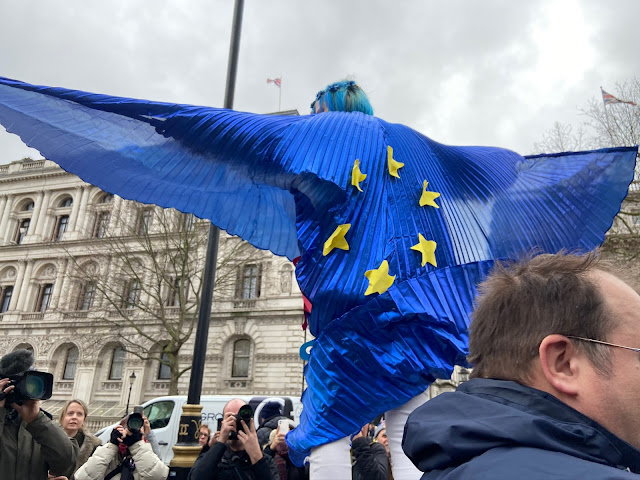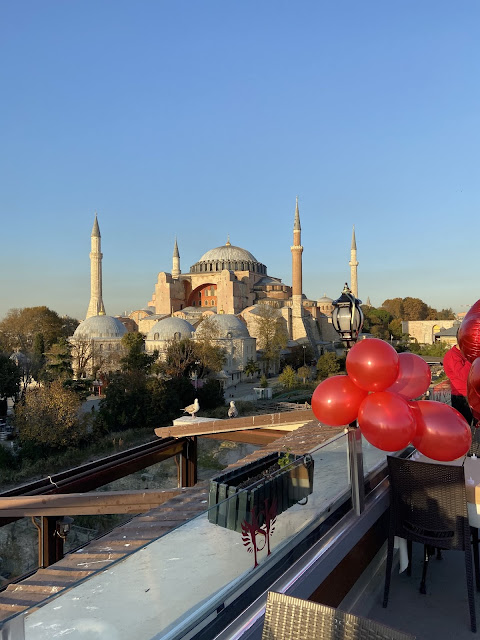International Migration Day and the case for migrants
Today is International Migration Day and it's been such a doom and gloom kind of year, I would like to end it on a brighter note by stating the obvious: whether they believe it or not, or no matter how many times they try to surpress it, Britain remains a very plural and diverse society.
This diversity may have been engulfed in recent years by the jingoism and ethno-centred patriotic shouts of a (very) loud minority, but it goes without saying that a defunct empire that once "ruled the waves", encompassing over 23% of the Earth's landmass at its peak, would inevitably become a melting pot of different cultures and peoples at this Empire's wake.
That, sadly, isn't usually addressed, nor in the least recognised.
Levels of opposition to immigration in the U.K. are still very high, even though it is one of the powerhouses driving the economy forward, with only 17% favouring an increase in immigration levels.
It is hard not to bring Brexit into this discussion, as it has become this sort of big, black vulture hovering over our heads the last four years, but I will not delve into the economic aspect of it for this piece. I've aired too much of my discontent and grief with the current state of affairs on social media already. Instead, I would like to remind every British person reading this, regardless of their background or family's history, how big a contribution migrants make to this country.
From the food we eat daily, and I would like to mention chicken tikka masala, which is now heralded as a nation favourite and whose origins are traceable back to Colonial India, to brand new British accents, born out of concoctions of Cockney/Mancunian/Estuary English accents and Afro-Caribbean slangs, up and down the country, Britain has not only dipped its toe in the waters, it has dived deep in the diversity pool.
Like Craig and Charlie Reid famously chant in their Scotland's Story - a right belter, dare I say - "in Scotland's story I heard that they came, from Gaels and Pict, and Angle and Dane, but where's all the Chinese and Indian names? They're in my land's story and they're all worth the same".
Britain and its proud English nationalism was built on the back of enslaved Africans, Asians, factory workers in Northern England, starved Irishmen, women and children, and downtrodden Scots. Thus, Britain's History is as much for the British as it is Chinese, Indian, Sri Lankan, South African, Ghanaian, Bangladeshi and on and on the list goes.
Mixed-race Britons shouldn't be made to feel alien and unwanted in their own home country, nor hesitant to promptly identify as "British" when posed micro-aggressive racist questions. They are British with all the beautiful complexities that entails, and those extend beyond the standardised white-centred narrative we have championed disproportionately for years.
I believe we have evolved enough as a society not to treat nations as villains or victims of their own dark past or misfortune, but there is still wrong to be redressed, or simply addressed and owned. It is paramount we look back and learn from our past mistakes so we do not repeat them.
Yet ever so often Britain fails to acknowledge and celebrate its mixed heritage, brandishing British as a whiteness trophy that the so-called "native" Britons should be proud of, irrespective of how in "ruling the waves" they brought about the dangerous mix of culture erasure and economic upheaval in many of its Commonwealth brothers.
You don't need to cross an ocean to come to terms with that.
As John Connell, an Irish author and runner elaborates, you can tell Britain's History without mentioning Ireland at all, but you can't tell Ireland's History without mentioning the British. It may seem unfathomable to think, but young pupils across the U.K. are still not taught the hardcore truth of what the British Empire truly was to this day, the horrors it perpetrated or the pain it inflicted on so many different indigenous populations.
Kids are taught to be British and proud, but there are many facets to what being British really is. Like it is the case with many other former European empires, not all of them are good, but all should be accounted for, and it is the lack of complexity in defining what being British means that leads to the inevitability of racial wars, misinformation and unarguably xenophobic policies.
The U.K. needs migrants as much as migrants need the U.K. The odd staunch Brexiteer would be surprised to learn the average UK-based migrant from Europe contributes approximately £2.300 more to UK public finances than the average UK adult, giving back more than take in return.
To end my "Remoaner" Owen-Jones inspired lefty rant, this is indeed a great nation for a number of reasons, but maybe not a single one of them relating to what the likes of Nigel Farage and Jacob Rhees-Mogg would be classing as British-defining greatness.
To quote Choose Love.org and a seemingly very Christian statement, which ironically goes against the apparent values of this Christian nation, "when you have more than you need, build a longer table not a higher wall."



Comments
Post a Comment